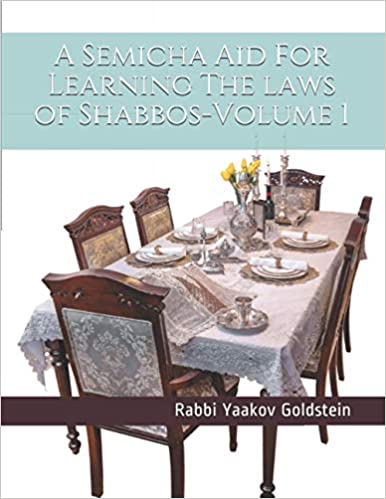

To purchase this Sefer, click here
3. Is it permitted to insulate during Bein Hashmashos[1] of Erev Shabbos?[2]
By Bein Hashmashos, even though it is questionable if it is considered nighttime [and thus perhaps Shabbos has already begun, nevertheless], one is permitted to insulate [food] in something that does not add heat. [However, if the material adds heat then it is forbidden to insulate in it in all cases beginning from sunset, even in cases that before sunset it would be permitted to insulate, such as within a plastered oven or with stones.] [See Q&A 1]
The reason for why this is permitted is: because pots are usually still hot by Bein Hashmashos, as close to Bein Hashmashos the pots are removed from the fire and thus [at Bein Hashmashos] there is no need to worry that perhaps the food has cooled off and one will come to reheat it.
If one had accepted Shabbos early, may he still insulate with material that does not add heat until after Bein Hashmashos?[3] One who has fully [see Q&A for definition] accepted Shabbos prior to [nightfall, or even] sunset, is forbidden to do any Shabbos forbidden activity, even Rabbinical in nature, from that time and on. Hence all the permitted activities that may be done during Bein Hashmashos, are forbidden for him to do from the time he fully accepted Shabbos, even if it is before sunset. Hence he may not insulate hot foods for Shabbos in material that does not add heat even if he does not have any other food to eat for Shabbos.
|
Q&A What is the meaning of fully accepting Shabbos?[4] In this respect, Shabbos is only considered accepted if one has lit candles and thus accepted Shabbos, or if one has already Davened Maariv, or has answered Barchu, or the majority of one’s Shul has accepted Shabbos[5]. However, if none of the above have been fulfilled, and one simply decided on his own to accept Shabbos early [as is done for Tosefes Shabbos], then he may insulate until the end of Bein Hashmashos.[6]
May one who lit candles do Hatmanah until night?[7] No, as he or she has already accepted all the laws Shabbos, as explained in the previous question.
|
_______________________________________________________
[1] Bein Hashmashos, in accordance to the final ruling and custom, is the time between sunset and the definitive beginning of night. The time of night definitively begins when one can begin to see three medium stars. Before these stars can be seen, it is questionable whether the in between time period is considered part of night or part of the previous day. Practically regarding doing permitted Melachas by Bein Hashmashos, one is to be stringent like the strictest opinion regarding the start of Tzeis Hakochavim.
[2] Admur 257:2; 261:2; Michaber 257:1
[3] Admur 261:3; Shabbos Kehalacha Vol. 2 page 2-4
[4] Admur 261:2; Kuntrus Achron 261:3; Ketzos Hashulchan 77 footnote 11; Shabbos Kehalacha Vol. 2 page 2-4; See Piskeiy Teshuvos 261:8
[5] Admur 261:4
[6] Other opinions: The Igros Moshe [4:74-1] rules stringently that today it is never practical to insulate by Bein Hashmashos as certainly most of the community has accepted Tosefes Shabbos before Shekiah. However Rav Farkash in the supplements [pages 69-72] argues and disproves this with very strong supports, and so seems to be the ruling as written above, that there is a difference between Tosefes Shabbos and Maariv and the like.
[7] Igros Moshe 4:74-1; Ketzos Hashulchan 77 footnote 11; M”B 263:43; Shabbos Kehalacha Vol. 2 page 2-4; Piskeiy Teshuvos 261:8
Other opinions: Some opinions rule one may do all Melacha’s permitted by Bein Hashmashos even after lighting andles. [Chasam Sofer 65; Shoel Umeishiv Telisa 2:23; Erech Shay 263:17; Meishiv Davar 1:22; Tehila Ledavid 261:10 leaves this matter in question]


Leave A Comment?
You must be logged in to post a comment.